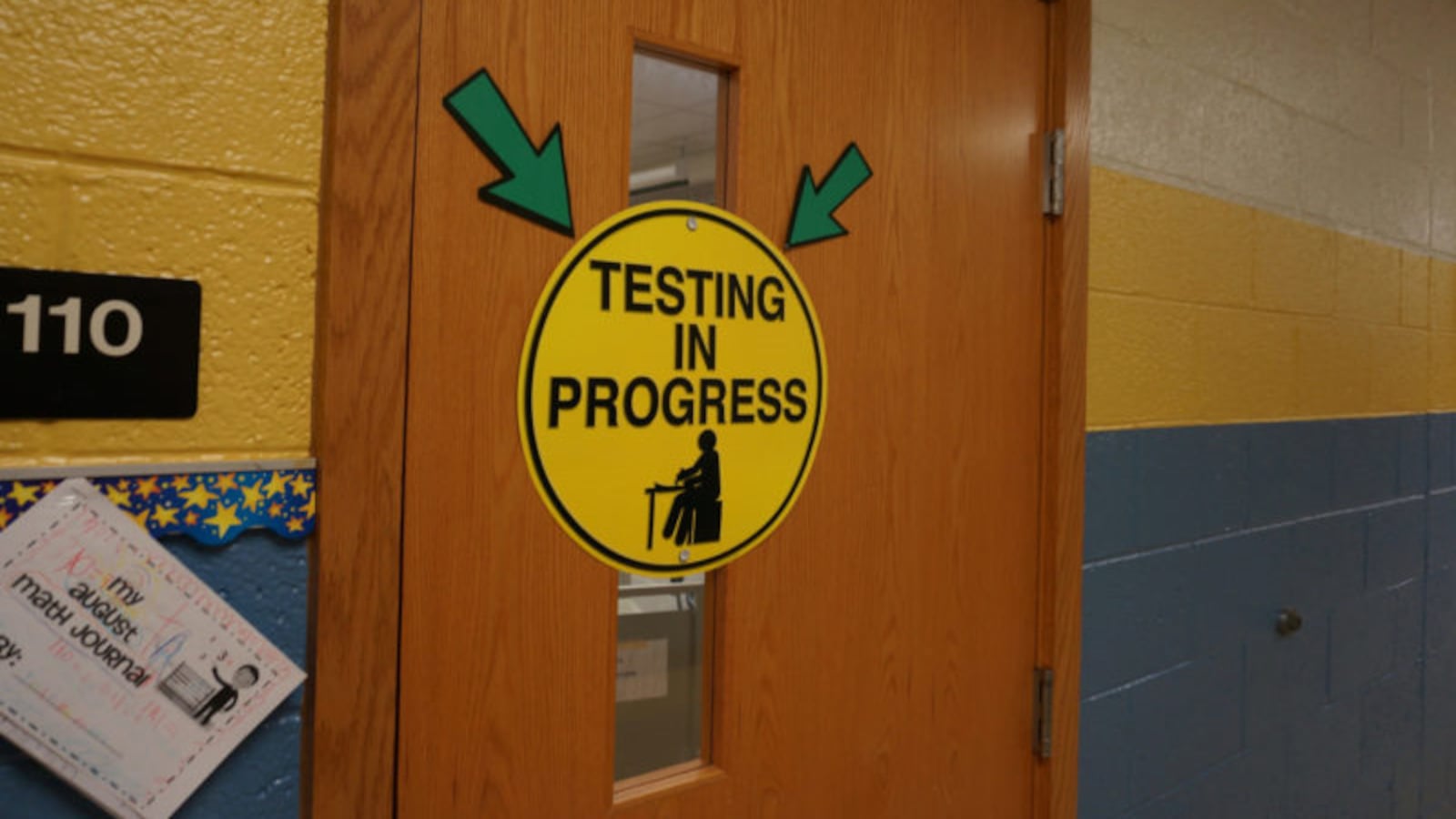Indiana’s Republican leaders have spent the majority of this year’s legislative session highlighting the importance of preparing students for the workforce. Why then, educators ask, is the state planning to use college entrance exams to measure schools?
That apparent contradiction was among the complaints raised Friday by teachers and administrators during a public comment session about Indiana’s proposed A-F grading rules for schools.
“The intent (of A-F grades) has always been to make school performance transparent and easily understood by students, staff, parents and community members,” said Liz Walters, principal at Beech Grove High School. “The proposed accountability rule does anything but that.”
This year, there are a few major proposals that could change how the state measures schools and student learning — plans for a new testing system for all grades, new graduation requirements, and preparations to change A-F grades to comply with new federal laws. Though technically separate, they are all related, and changes to one proposal can affect the others. It’s the different intentions behind these plans, said Walters and other educators, that send mixed signals.
First, Indiana is in the process of creating a new testing system to replace ISTEP, and the high school portion is still undecided. Plans are now in the works through House Bill 1426 to have high-schoolers take a college entrance exam, such as the SAT and ACT, instead of the 10th-grade ISTEP they take now.
Indiana is also creating new “graduation pathways” to replace the current English and math exams students must pass to earn a diploma. The goal, lawmakers and policymakers have said, is to make the criteria students will have to meet more valuable to their post-high school plans, such as earning a technical license or credits for college.
And finally, Indiana, like every state in the country, is re-thinking how it rates schools as a result of new federal education law. Those new federal rules mean the state has to rewrite its A-F grading policy, which includes rules around testing and graduation. The Indiana State Board of Education can use the feedback it gets from public comments to revise its proposed rules before taking a final vote sometime this summer.
At Friday’s meeting, Jeff Butts, superintendent in Wayne Township, said making the high school test worth up to 30 percent of a school’s grade just doesn’t make sense. Exams like the SAT and ACT weren’t designed to measure high school state academic standards, Butts said, and more importantly, of the Indiana students who did take them, 78 percent had average composite scores below the recommended cut-off for college readiness from testing companies. Holding schools to such a standard is unfair, he said.
And when Gov. Eric Holcomb and other legislative leaders have made workforce readiness a central part of their 2018 legislative agendas, he said, it sends a mixed message.
“Why determine 30 percent of a high school’s success on a single exam … designed as a predictor, not indicator, of college success, taken by all kids regardless of the path chosen?” Butts said.
Butts acknowledged that the college entrance exam plan will likely move ahead. Lawmakers are wrapping up the 2018 session next week, and the bill has received support from both houses.
Rep. Bob Behning, who wrote the bill with the college entrance exam proposal, said the change would help eliminate the many test retakes that occured with the current system. It also, he has told policymakers, could prove more useful and relevant for students than a state-specific content area exam. State Superintendent Jennifer McCormick has also supported the move to a college entrance test.
Indiana’s focus on workforce readiness is part of a broader national push to ensure students are prepared for life after high school, where college is just one of several options.
Yet the state’s policy changes have gone back and forth between prioritizing the importance of rigorous college-level coursework and freedom from regulations that can make it hard for less academically inclined students to be successful. But ultimately, federal law requires a uniform measure of student learning — in Indiana’s case, A-F grades.
Educators’ other concern with the A-F grading proposal was that it no longer factors in high school students’ improvement on tests and reduces the its importance for K-8 schools.
“Capping that growth really removes the part of the great job our teachers do in the classroom,” said Todd Terrill, a superintendent from Richmond. “I truly believe that growth is the greatest indicator of academic success and accomplishment.”
Overall, about 15 people showed up for the Friday morning meeting. Richard Arkanoff, superintendent in Center Grove, argued the low attendance reflected concerns from educators that their voices aren’t being heard. He mentioned the state board’s vote in December to approve the graduation pathways plan, where dozens of educators spent hours speaking against the sweeping proposal.
“I don’t remember the last time, and I’ve been doing this for 20 years, that that many people spoke against something and it fell on deal ears,” Arkanoff said. “People are feeling as if they are not going to be heard, so why bother?”
The state board is scheduled to hold another A-F grade rule public comment session from 4-7 p.m. on Monday, March 19, at Ivy Tech’s Illinois Fall Creek Center.

